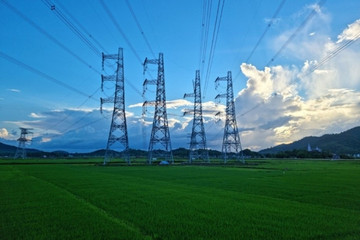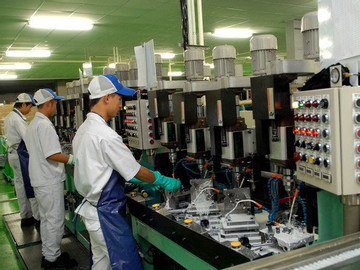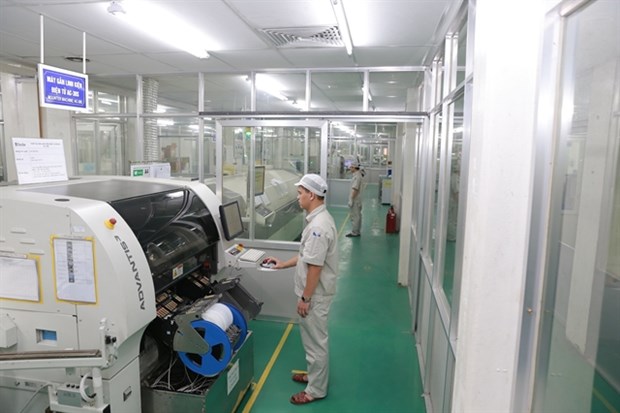- © Copyright of Vietnamnet Global.
- Tel: 024 3772 7988 Fax: (024) 37722734
- Email: [email protected]
SOEs
Update news SOEs
SCIC unveils first phase of 73 enterprise divestment plan for 2023
The State Capital Investment Corporation (SCIC) has recently announced its first phase of divestments for 2023, which includes 73 enterprises with some high-profile companies in the stock exchange.
Stakeholders urge more autonomy for State-owned businesses
Stakeholders are calling for a new decision-making mechanism for State-owned enterprises to allow them to operate more independently and sustainably.
The crucial plans ahead in 2023 for Vietnam’s state-owned enterprises
While state-owned enterprises made strong efforts to recover during 2022, more tasks and plans are waiting for them in the path ahead to show their key role in the national economy.
Loss-making projects turn fortunes around
Five of the 12 delayed or former loss-making projects under the Ministry of Industry and Trade (MoIT) have become profitable, while the seven others made positive changes.
State to divest capital in 141 enterprises
Deputy Prime Minister Le Minh Khai, on November 29, signed Decision No.1479/QD-TTg approving the plan to rearrange State-owned enterprises and enterprises with State capital in the 2022-2025 period.
Reports lay bare sticking points in SOE restructuring
With a slew of state-owned enterprises performing poorly, there have been warnings that slow reform will continue undermining the country’s competitiveness and investment climate.
SOEs needs to innovate as VN aims to have at least 25 with market cap from $1 billion
It was critical for State-owned enterprises (SOEs) to strengthen innovations as Viet Nam set the target of having at least 25 SOEs with a market capitalisation of US$1 billion and more.
Vietnam to have ten large SOEs by 2025
The Government has set a target of having at least 25 State-owned enterprises (SOEs) with a market capitalization of over US$1 billion each by 2025, of which ten will have a market cap of over US$5 billion each.
Maritime corporation wants to divest from large ports
The Commission for the Management of State Capital at Enterprises (CMSC) has sent to relevant ministries a plan to restructure the Vietnam Maritime Corporation (VIMC) from now to 2025.
State-run firms incur huge losses from overseas projects
Thirty projects invested overseas by State-run enterprises racked up total losses of US$335.5 million in 2021, up 42% year-on-year.
Big losses reported for many SOEs
A government report shows that 38 out of 197 enterprises in which the state holds more than 50 percent of charter capital have accumulated losses of VND33.143 trillion.
Audits of enterprises with less than a 50% public stake face difficulties
Legal restrictions make it difficult to audit the use of capital, assets, land and the use of workers in enterprises in which the state holds less than 50 percent of capital.
State-owned enterprises miss great opportunity
The world is changing, and many great opportunities have opened up for Vietnam. However, state-owned enterprises (SOEs), which have the greatest potential, cannot take advantage of these opportunities.
Equitization of State-owned enterprises still going slowly
Due to the slow progress of equitization, the scale of state-owned enterprises (SOEs) in the economy is still very large, accounted for 7% of total assets and 10% of equity of all enterprises in the market.
Slow equitization of State-owned enterprises
The Ministry of Finance has stated in its recent report that the equitization process of State-owned enterprises (SOEs) has been taking place very slowly and therefore has not achieved its set target.
State-owned enterprises - good and bad
State-owned enterprises (SOEs) have not been able to fulfill their leading and motivating role in the economy and lack a strategic vision to develop and participate in global value chains.
Vietnam needs drastic SOE restructuring: experts
Deputy Prime Minister Le Minh Khai has signed a decision to deepen the restructuring of state-owned enterprises (SOEs) in 2021-25.
Equitisation and divestment move slowly
Although relevant policies have been put in place, the process of equitisation and divestment of state capital is still moving at a very slow pace.
Vietnam aims to have 7 world-class state-owned corporations
The world is changing, with many great opportunities opening up for Vietnam. However, Vietnamese state-owned corporations, which have both financial and human resources potential, are unable to reach out to the world to seize these opportunities.
Full financial reports of SoEs not submitted: Finance Ministry
According to experts, many SoEs which used to make significant profits and contributed to the State budget, have become burdens on the economy when their investments caused losses of trillions of dong.



















